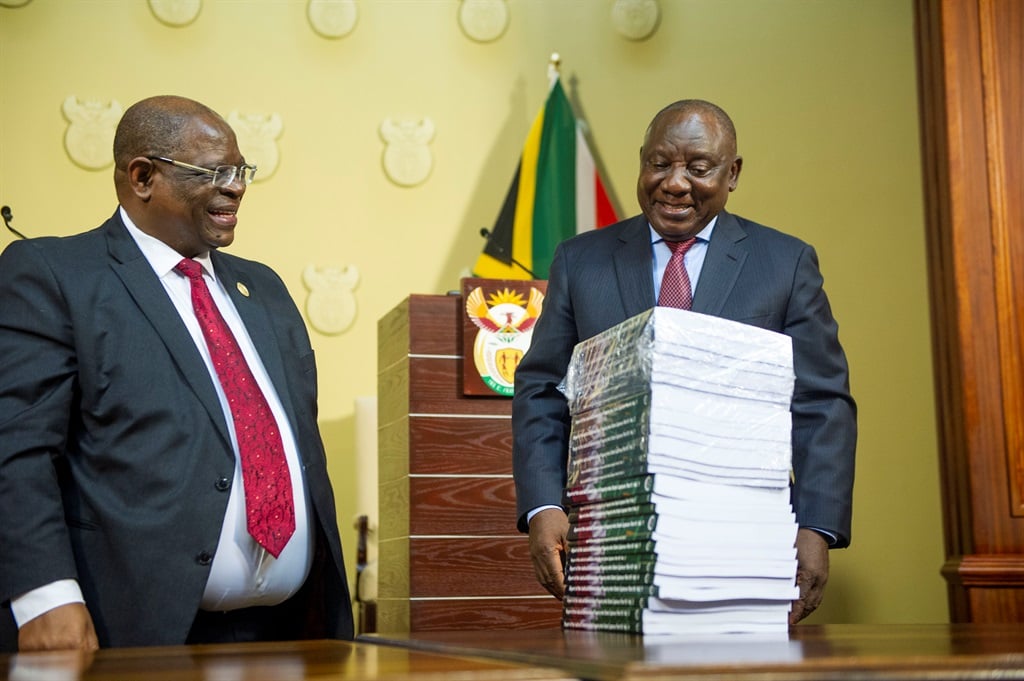
South Africa owes Chief Justice Raymond Zondo a debt of gratitude.
Despite continuous assaults on his character, integrity, and threats to his safety, Zondo has stood firm and produced a seminal and voluminous report exposing the state capture rot almost four years after his hearings started.
Zondo looked exhausted when he handed over the last two volumes of his report to President Cyril Ramaphosa on Tuesday night - and understandably so. His reports, no doubt compiled with the assistance of a competent legal team, did not only expose systemic instances of corruption and state capture, but also diagnosed the cause, and proposed solutions in the form of electoral reform and doing away with cadre deployment.
It was no easy task. Zondo had to endure the abuse of plenty who appeared before him, not least former president Jacob Zuma who was ultimately imprisoned for contempt of court after refusing to continue to appear before Zondo (who Zuma had appointed as president). In a historic twist of irony, Zuma, who initiated the commission on the instruction of former Public Protector Thuli Madonsela, was its biggest victim.
Zuma's name was the golden thread throughout Zondo's reports, and he must surely face more charges in court soon. So will his family members, friends and former colleagues who participated in, and benefitted from, the theft of billions of rands from South Africa's coffers.
Zondo has recommended that the late Van Zyl Slabbert's report on electoral reform from 2003 be dusted off and that the direct election of a president be seriously considered. This would require an amendment to the Constitution, and would mean that political parties will have to think twice about who they put up as presidential candidates.
As he wrote his final report, Parliament was given a six-month extension to finalise amendments to the Electoral Act to allow independent candidates to participate in the national and provincial elections. This is the ideal moment for the institution to incorporate Zondo's recommendations and seriously consider deeper electoral reform.
Zondo's finding that cadre deployment is unlawful and unconstitutional will have far-reaching consequences for government appointments where ANC loyalty came before skill or competency. The governing party will have to tackle this matter head-on and seriously consider Zondo's findings that state capture was committed by the party's deployed cadres.
Lastly, Zondo's suggestions of a new tender system and independent adjudicator is long overdue and could revolutionise procurement. Ramaphosa and the ANC government have to be commended for allowing the commission to complete its work, with the necessary budgetary support and participation from the president and the executive.
But the ultimate success of the commission will be seen in the implementation of its recommendations, not only by the Hawks and the National Prosecuting Authority, but also by Ramaphosa, the ANC and Parliament.

